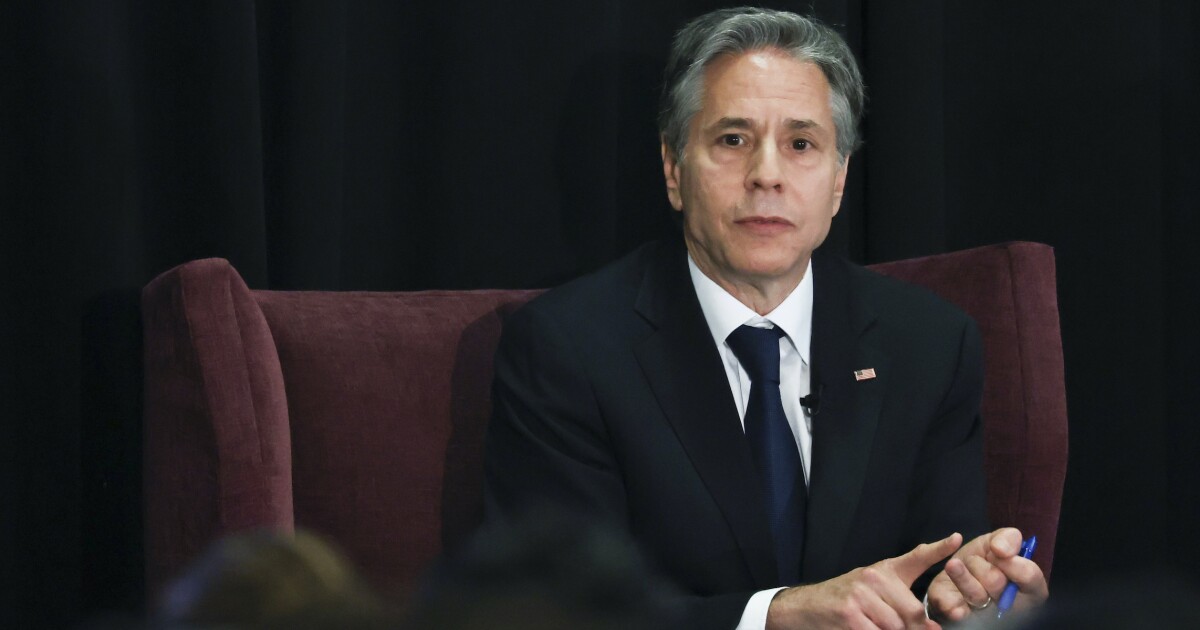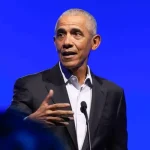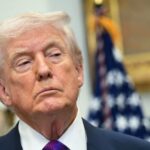

A showdown over Iran’s lack of transparency with United Nations watchdogs could soon doom President Joe Biden’s hope of restoring the 2015 nuclear deal.
Iranian officials notified the International Atomic Energy Agency that they will remove more than two dozen cameras installed pursuant to the terms of the Joint Comprehensive Plan of Action, as the 2015 pact is known. The regime took that step in retaliation for an international resolution condemning Tehran’s failure to answer long-standing questions about nuclear material detected at nuclear sites that they tried to hide throughout the implementation of the nuclear deal, raising the chances that Biden’s team will be forced to intensify the economic pressure that Donald Trump’s administration sought to impose after their withdrawal from the agreement in 2018.
“The only outcome of such a path will be a deepening nuclear crisis and further economic and political isolation for Iran,” Secretary of State Antony Blinken said Thursday. “We continue to press Iran to choose diplomacy and de-escalation instead.”
Blinken and Western European powers introduced a resolution of censure at the IAEA this week, after IAEA director-general Rafael Grossi’s latest report that Iran continues to withhold “technically credible” answers to his team’s questions about the undeclared nuclear material. Iranian officials accused the IAEA of making allegations based on “false and fabricated information from the Zionist regime,” but Western officials condemned Tehran’s refusal to comply with its transparency obligations under international law.
“Iran’s lack of substantial cooperation with the IAEA’s investigation, which seeks to shed light on the presence of undeclared nuclear materials in Iran, is worrying,” a French Foreign Ministry spokesman said Thursday. “This situation significantly damages the strength and credibility of the IAEA verification regime being implemented in accordance with the Treaty on the Non-Proliferation of Nuclear Weapons. It constitutes an immediate challenge to the non-proliferation regime.”
Blinken protested Iran’s latest “threats of nuclear provocations and further reductions of transparency” as a wrongheaded conflation of two different controversies.
“The resolution is at the heart of the IAEA’s mandate and Iran’s core obligations under the Nuclear Non-Proliferation Treaty, not about the Joint Comprehensive Plan of Action,” he said. “The United States remains committed to a mutual return to full implementation of the JCPOA.”
France, Germany, and the United Kingdom labored from 2018 through 2020 to prevent the total collapse of the 2015 nuclear deal after Trump withdrew the United States on the grounds that the pact empowered Iranian conventional aggression in exchange for inadequate nuclear safeguards. Biden’s election raised the chances of an agreement for both the United States and Iran to return to compliance with the deal, but those negotiations have been at an impasse for months — and could soon fail altogether,if Iran does not reverse its decision to remove the cameras.
“This would be a fatal blow [to the negotiations],” Grossi told reporters Thursday.
If the cameras go offline for more than “three or four weeks,” the nuclear watchdog chief explained, then his inspectors will lose their ability to give confident assessments about the status of the Iranian nuclear program ahead of a prospective return to the 2015 deal.
“The agency would not be able to give a service to the parties [to the deal] in terms of telling them what the baseline is, where they are,” he said. “So unless the agency can say, ‘these are the quantities, these are the volumes, and from here you can determine what you want to reduce, [and] how we can verify that’ — when we lose this, well, then it’s anybody’s guess.”
The IAEA chief’s public assessment may have started a clock that would pressure Blinken to abandon the talks in the absence of a breakthrough.
“Grossi has put a timeline on this, in terms of our insight into the nuclear program, and so now the admin has to think about, ‘OK, in three to four weeks, are we comfortable with having very little transparency through the IAEA?’ Obviously, we have our own information,” Foundation for Defense of Democracies senior fellow Anthony Ruggiero told the Washington Examiner. “Or are they comfortable going in a different direction?”
Ruggiero, who was the senior director for counterproliferation issues at the White House National Security Council under Trump, suggested that the Blinken team “will likely have to embrace pressure” and renew the Trump-era intensification of sanctions that their Iran desk has eschewed since Biden took office. And they would likely “have a slightly easier time doing it,” given their exhaustion of other options, as Ruggiero put it.
“They can basically say, hey we tried, 18 months work . . . and all we got from Iran was nuclear escalation and escalation within the region, and all these things that we were trying to prevent,” he said. “We’ve now got to reverse the tide.”
Such an attempted reversal would come at a juncture in which Iran would all but certainly possess enough nuclear material to build one or more nuclear bombs. That dynamic is regarded by at least one top Biden ally as a reason to abandon the nuclear deal — the restoration of which has been stalled since March, when the regime reportedly demanded that Biden rescind the Trump-era designation of Iran’s Islamic Revolutionary Guard Corps as a terrorist organization.
“Iran now has enough uranium to produce a nuclear weapon. This latest milestone returns us to a familiar question: At what point will the administration acknowledge that Iran’s nuclear advances make a return to the 2015 JCPOA not in the United States’s strategic interest?” Senate Foreign Relations Chairman Bob Menendez (D-NJ) said Wednesday evening, as he celebrated the IAEA rebuke of Iran. “I commend the Biden administration and France, Germany, and the United Kingdom for introducing this resolution as a first step to realizing such a strategy.”
For now, at least, Blinken is still signaling a desire for Iran to return to the nuclear deal before the clock finally runs out.
CLICK HERE TO READ MORE FROM THE WASHINGTON EXAMINER
“We are prepared to conclude a deal on the basis of the understandings we negotiated with our European Allies in Vienna over many months,” he said. “Such a deal has been available since March, but we can only conclude negotiations and implement it if Iran drops its additional demands that are extraneous to the JCPOA.”







